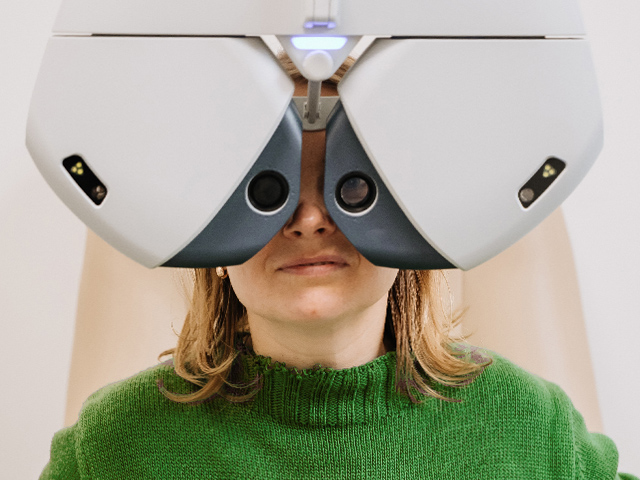
Regular eye exams are a vital part of preventive care. Many eye issues do not have apparent signs in the early stages. You might not know that you have a problem until the condition is severe. The best way to protect your eye health is to schedule regular eye exams.
Early diagnosis and treatment can help you avoid vision loss. Comprehensive eye exams are different from routine exams that help check the vision. It is helpful to learn the difference between a comprehensive and a routine eye exam.
Routine Eye Exams
The main goal of routine eye exams is to check if an individual has a refractive eye error or vision impairment. Refractive errors are prevalent, the most common one being myopia or nearsightedness. Other refractive eye errors are farsightedness (hyperopia), astigmatism, and presbyopia.
The errors occur due to incorrect reflection of light on the retina. It causes images sent to the brain to appear blurred and distorted. It can make it difficult to focus on the images. People with refractive errors can experience symptoms such as eyestrain and headaches.
Comprehensive Eye Exams
Comprehensive eye exams are different from routine exams because they are more detailed. Apart from checking whether the patient has refractive errors, the eye doctor will evaluate the overall eye health. The doctor will check eye movement and shape while also checking for any eye abnormalities. The exam includes screening for eye diseases.
A comprehensive eye exam will typically include a visual acuity test, pupil dilation, and glaucoma testing. Other tests include a cover test, an ocular motility test, a depth perception test, and a slit lamp exam.
Reasons to Get Routine Eye Exams
Routine eye exams assess how well the eyes see at various distances. They can be conducted in 30 minutes or less, and they help determine whether an individual requires vision correction. The eye doctor will determine the prescription for corrective eyewear like glasses or contact lenses.
The doctor will help you choose the right lenses for your requirements. If you want to wear contacts, you will require additional contact lens fitting. It will help ensure that the lenses fit correctly.
Benefits of Comprehensive Eye Exams
A comprehensive eye exam will allow the eye doctor to determine if you have an eye disease. The tests are painless, and the doctor will explain the benefits and what you can expect from each test. Early detection of eye conditions can help protect your eyes and vision.
Some severe conditions detected during comprehensive exams include cataracts, macular eye degeneration, glaucoma, and diabetic retinopathy. The exam can also help identify binocular vision dysfunction, keratoconus, and other vision-damaging conditions.
Frequency of Eye Exams
Your eye doctor will recommend the best schedule for your eye exams. Most eye specialists recommend comprehensive eye exams every year. If you have an existing eye condition, the doctor will recommend more frequent exams.
Getting routine vision testing should not take the place of a comprehensive eye exam. Regular screenings can miss signs of severe eye conditions. They can offer false security as people think that passing the test indicates they have healthy eyes.
The earlier a doctor detects vision or eye conditions, the more effective the treatment will be. Comprehensive eye exams are vital for long-term eye health.
For more on comprehensive and routine eye exams, visit Alpha Eye Group at our offices in Philadelphia, Wyomissing, Bethlehem Twp, Philadelphia, or Doylestown, Pennsylvania. You can call (215) 698-7760, (610) 376-7272, (610) 866-1000, (215) 878-7181, or (215) 230-4060 today to schedule an appointment.




